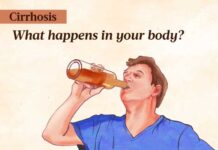
Smoking cigarettes is one of the most difficult addictions to overcome, so it’s only natural that you want to try anything that might help you quit. Many people try natural remedies, but not all of them are effective or safe. However, some studies do show promising results for some.
Many people who successfully quit used multiple approaches, including counseling or a support system, so you might find that a combination of methods works best for you. Be sure to talk to your doctor to make sure any alternative treatment you try is safe for you.
Acupuncture
Acupuncture may be effective for helping people quit smoking. An acupuncturist will insert thin needles (that are about as thin as a strand of hair) into certain pressure points on the body. People receive acupuncture for various conditions such as chronic pain and migraines.1
Acupuncture is generally safe; however, tissue injury may occur if needles are inserted improperly. If the needles aren’t sanitized, there is also a risk of infection.
Effective for Quitting Smoking
One study looked at the effect acupuncture had on smoking cessation.2 Participants received acupuncture needles in various parts of the ear where they remained for about 20 minutes.
For help resisting smoking in between sessions, acupuncturists provided tiny balls (the size of the tip of a ballpoint pen), that were taped to participants’ ears with invisible tape. When a craving for a cigarette hit, the participant was instructed to press gently on the ball, which stimulated the acupuncture point.
As a result, the number of cigarettes that each person smoked per day decreased—the average time to relapse was 38.71 days, which was longer than 35 days for people who used e-cigarettes and 14 days for people who used nicotine patches as a method of quitting.2
The authors of the study concluded that acupuncture was both an effective and safe method to help people quit smoking.
Black Pepper
Black pepper essential oil may reduce the severity of cigarette cravings.3 In one study, participants inhaled one drop of pepper oil on a tissue for two minutes whenever they were struck with a craving.
May Reduce Cravings
The participants reported that both black pepper oil and angelica oil reduced the intensity of their cravings; in addition, the oils made cravings less frequent.
Black pepper oil was more effective at reducing cravings, whereas angelica oil was more effective in extending the time in between cravings.
Inhaling black pepper oil is a type of aromatherapy that may help relieve cravings; however, further studies are needed to fully understand the effects.
Hypnotherapy
Hypnotherapy is a type of treatment, usually aided by a therapist, in which a person is brought into a “trance” or a state of consciousness that is deeply connected with their inner thoughts and feelings.4
It may help patients cope with emotional distress and trauma. Hypnosis is generally considered a safe treatment when performed by a trained therapist or professional.
Mixed Results for Smoking Cessation
According to one randomized trial, hypnotherapy is only slightly more effective than behavioral counseling in helping people quit smoking.5
Participants who underwent hypnotherapy had a 29% success rate of abstaining from cigarettes after one year of quitting. Those who did counseling had a 28% success rate of smoking abstinence, so the results were similar.
In another study, hypnotherapy was compared with nicotine replacement therapies (NRTs). The conclusion was that hypnotherapy was more effective than NRT in long-term abstinence, though there was no improvement in abstinence when the two therapies were combined.6
If you are hesitant to try hypnotherapy, you might try another therapy type like cognitive behavioral therapy (CBT).
CBT has been shown to help improve self-control when it comes to resisting the urge to smoke cigarettes.7
St. John’s Wort
St. John’s is an herb that has been used medicinally for centuries. It is used to treat the symptoms of depression, symptoms of menopause, attention-deficit/hyperactivity disorder (ADHD), obsessive-compulsive disorder (OCD), among many other conditions. Whether it is effective for these conditions is up for debate.
According to the National Center for Complementary and Integrative Health, St. John’s Wort has been shown to be as effective as a standard antidepressant when taken for mild and moderate depression for a short-term period.8
It is not proven to be an effective long-term treatment for depression; it is also not proven to be effective in treating more severe types of depression.
More Research Is Needed
Though some people take St. John’s Wort for smoking cessation, it is not proven to be effective for that purpose.9 More research is needed to know for sure.
Although St. John’s Wort appears to be reasonably safe when taken alone, it can interfere with the effectiveness of prescription and over-the-counter medications, including antidepressants, drugs to treat HIV infections and AIDs, drugs to prevent organ rejection for transplant patients, and oral contraceptives.10
St. John’s wort is not recommended for people who are pregnant or breastfeeding. Be sure to talk to your doctor before taking this or any other herbal supplement.
Fresh Lime Juice
Limes might be an affordable, accessible alternative to nicotine gum for smoking cessation.11 Researchers in one study measured smoking abstinence in participants who used lime juice as a cessation method and compared them with those who used nicotine gum.
May Help Smoking Abstinence
After seven days, people who consumed lime juice were found to have higher smoking abstinence rates than those who used the nicotine gum. However, nicotine gum was better at reducing cravings for cigarettes.
It’s not known for sure why lime juice may help with cravings. Researchers have noted that people who smoke commonly have lower levels of vitamin C in their bodies which may increase cravings, and lime juice can replenish vitamin C in the body.12
Limes also have antibacterial properties which help to restore the immune system of people who smoke.
Further studies are needed to fully understand how lime juice can lead to smoking cessation.
Lobelia Is Not Recommended
The herb lobelia (Lobelia inflata) has been promoted to help people fight the effects of nicotine withdrawal and it is found in many anti-smoking products. The active ingredient in lobelia is lobeline, and it is thought to have similar actions on the body as nicotine.
Lobelia is a potentially toxic herb, however, so it is not recommended as a method to quit smoking. It is also in the FDA’s Poisonous Plant Database. Lobelia can cause dry mouth, profuse sweating, nausea, vomiting, diarrhea, tremors, rapid heartbeat, confusion, seizures, and coma. In larger doses, it can even cause death.13
People with heart disease, high blood pressure, heart disease, tobacco sensitivity, paralysis, seizure disorder, shortness of breath, or who are recovering from shock are at particularly high risk. Children and people who are pregnant or breastfeeding should not take lobelia.
Lifestyle Changes
There are also lifestyle changes—from diet to sleep—that can help you quit smoking.
Studies find that people who smoke tend to have less nutritious diets than people who’ve never smoked. A healthy diet may help with smoking cessation.14
Make sure you’re drinking enough water.15 Staying hydrated is a great preventative measure to take to manage cravings. Limit your intake of caffeine and sugar. One study links caffeinated beverages and sugary beverages (like energy drinks) with increased smoking.16
Deep breathing and meditation have been linked with smoking cessation.17 Also, be sure you’re getting enough physical activity and enough sleep. Taking care of your body and fulfilling these basic needs can go a long way in supporting smoking cessation.
A Word From Verywell
If you’re considering the use of any form of alternative medicine to help you quit smoking, talk with your doctor first. Many supplements and herbs, for instance, have warnings stating that people with certain medical conditions and/or people who are pregnant or breastfeeding shouldn’t take them.
Quitting smoking isn’t easy, but you may find some relief by trying which natural remedies—along with other forms of treatment like counseling or nicotine replacement therapy—work best for you.
Sources:
- Kawakita K, Okada K. Acupuncture therapy: Mechanism of action, efficacy, and safety: a potential intervention for psychogenic disorders?. Biopsychosoc Med. 2014;8(1):4. doi:10.1186/1751-0759-8-4
- Wang YY, Liu Z, Wu Y, et al. Acupuncture for smoking cessation in Hong Kong: A prospective multicenter observational study. Evid Based Complement Alternat Med. 2016;2016:2865831. doi:10.1155/2016/2865831
- Cordell B, Buckle J. The effects of aromatherapy on nicotine craving on a U.S. campus: A small comparison study. The Journal of Alternative and Complementary Medicine. 2013;19(8):709-713. doi:10.1089/acm.2012.0537
- Williamson A. What is hypnosis and how might it work?. Palliat Care. 2019;12:1178224219826581. doi:10.1177/1178224219826581
- Carmody TP, Duncan CL, Solkowitz SN, Huggins J, Simon JA. Hypnosis for smoking relapse prevention: A randomized trial. Am J Clin Hypn. 2017;60(2):159-171. doi:10.1080/00029157.2016.1261678
- Hasan FM, Zagarins SE, Pischke KM, et al. Hypnotherapy is more effective than nicotine replacement therapy for smoking cessation: Results of a randomized controlled trial. Complement Ther Med. 2014;22(1):1-8. doi:10.1016/j.ctim.2013.12.012
- Goyal J, Menon I, Goyal T, Passi D, Gupta U, Gupta R. Effectiveness of cognitive behavioral therapy and basic health education for tobacco cessation among adult tobacco users attending a private tobacco cessation center. J Family Med Prim Care. 2020;9(2):830-833. doi:10.4103/jfmpc.jfmpc_786_19
- National Center for Complementary and Integrative Health. St. John’s Wort.
- Nisaa ZU, Zafar A, Zafar F. Efficacy of a smoking cessation intervention using the natural agents. International Journal of Collaborative Research on Internal Medicine & Public Health. 2018;10(2):809-815.
- Di YM, Li CG, Xue CC, Zhou SF. Clinical drugs that interact with St. John’s wort and implication in drug development. Curr Pharm Des. 2008;14(17):1723-1742. doi:10.2174/138161208784746798
- Rungruanghiranya S, Ekpanyaskul C, Sakulisariyaporn C, Watcharanat P, et al. Efficacy of fresh lime for smoking cessation. J Med Assoc Thai. 2012;95 Suppl 12:S76-S82.
- Un Nisaa Z. Zafar A. Zafar F. Efficacy of a smoking cessation intervention using natural agents. International Journal of Collaborative Research on Internal Medicine & Public Health. 2018;10(2).
- Martin CA, Nuzzo PA, Ranseen JD, et al. Lobeline effects on cognitive performance in adult ADHD. J Atten Disord. 2018;22(14):1361-1366. doi:10.1177/1087054713497791
- Shakeela Begum M, Saradamma B, Reddy VD, et al. Influence of green tea consumption on cigarette smoking-induced biochemical changes in plasma and blood. Clinical Nutrition Experimental. 2017;16:1-12. doi:10.1016/j.yclnex.2017.10.002
- American Cancer Society. Help for cravings and tough situations while you’re quitting tobacco.
- Fagan MJ, Di Sebastiano KM, Qian W, Leatherdale S, Faulkner G. Coffee and cigarettes: Examining the association between caffeinated beverage consumption and smoking behaviour among youth in the COMPASS study. Preventive Medicine Reports. 2020;19:101148. doi:10.1016/j.pmedr.2020.101148
- Tang YY, Tang R, Posner MI. Brief meditation training induces smoking reduction. Proc Natl Acad Sci U S A. 2013;110(34):13971-13975. doi:10.1073/pnas.1311887110
Important Notice: This article was originally published at www.verywellmind.com by Laura Harold where all credits are due. Medically reviewed by Sanja Jelic, MD.
Disclaimer
The watching, interacting, and participation of any kind with anything on this page does not constitute or initiate a doctor-patient relationship with Dr. Farrah®. None of the statements here have been evaluated by the Food and Drug Administration (FDA). The products of Dr. Farrah® are not intended to diagnose, treat, cure, or prevent any disease. The information being provided should only be considered for education and entertainment purposes only. If you feel that anything you see or hear may be of value to you on this page or on any other medium of any kind associated with, showing, or quoting anything relating to Dr. Farrah® in any way at any time, you are encouraged to and agree to consult with a licensed healthcare professional in your area to discuss it. If you feel that you’re having a healthcare emergency, seek medical attention immediately. The views expressed here are simply either the views and opinions of Dr. Farrah® or others appearing and are protected under the first amendment.
Dr. Farrah® is a highly experienced Licensed Medical Doctor certified in evidence-based clinical nutrition, not some enthusiast, formulator, or medium promoting the wild and unrestrained use of nutrition products for health issues without clinical experience and scientific evidence of therapeutic benefit. Dr. Farrah® has personally and keenly studied everything she recommends, and more importantly, she’s closely observed the reactions and results in a clinical setting countless times over the course of her career involving the treatment of over 150,000 patients.
Dr. Farrah® promotes evidence-based natural approaches to health, which means integrating her individual scientific and clinical expertise with the best available external clinical evidence from systematic research. By individual clinical expertise, I refer to the proficiency and judgment that individual clinicians acquire through clinical experience and clinical practice.
Dr. Farrah® does not make any representation or warranties with respect to the accuracy, applicability, fitness, or completeness of any multimedia content provided. Dr. Farrah® does not warrant the performance, effectiveness, or applicability of any sites listed, linked, or referenced to, in, or by any multimedia content.
To be clear, the multimedia content is not intended to be a substitute for professional medical advice, diagnosis, or treatment. Always seek the advice of your physician or other qualified health providers with any questions you may have regarding a medical condition. Never disregard professional medical advice or delay in seeking it because of something you have read or seen in any website, video, image, or media of any kind. Dr. Farrah® hereby disclaims any and all liability to any party for any direct, indirect, implied, punitive, special, incidental, or other consequential damages arising directly or indirectly from any use of the content, which is provided as is, and without warranties.








